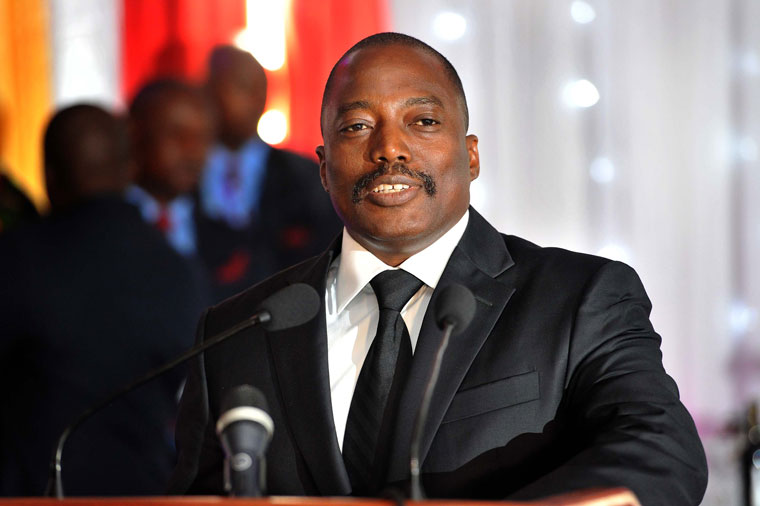In his only public speech this year, Joseph Kabila, president of the Democratic Republic of Congo, was defiant about his refusal to hand over power when his final term ends on Dec. 19. "I cannot allow the republic to be taken hostage by a fringe of the political class," he told parliament last month as members cheered.
His presidency had brought peace and economic growth to Congo, the 45-year-old said, outlining reforms he'd made in telecommunications, mining, energy and banking. What he didn't say is how some of his own family members are among the biggest beneficiaries of those changes—including his sister Jaynet and brother Zoe, who both listened from the front row as elected members of parliament.
Together the Kabilas have built a network of businesses that reaches into every corner of Congo's economy and has brought hundreds of millions of dollars to the family, a Bloomberg News investigation has found. The sprawling network may help explain why the president is ignoring pleas by the U.S., the European Union and a majority of the Congolese people to hand over power next week, though his advisers dispute this.
Kabila's refusal to step down threatens to thrust his country back into the kind of chaos that cost millions of lives after his father took power nearly two decades ago. It could also destroy the tenuous stability that attracted international investment—mainly from mining giants like Freeport-McMoRan Inc. and Glencore Plc—and turned Congo into Africa's biggest producer of copper, tin and cobalt.
In February, S&P Global Ratings lowered Congo's investment outlook to negative amid rising political tensions. It affirmed that view in August. The last civil war destroyed the country's copper industry, cutting production more than 96 percent by the time the conflict ended in 2003.
Since then, foreign investment has helped generate more than 100,000 jobs in mining and oil alone, tripled the size of the economy—and allowed the family's empire to flourish. Over that period, Kabila and his siblings have assembled an international business network stretching across at least 70 companies, according to a Bloomberg News analysis of thousands of company documents and court filings as well as dozens of interviews with bankers, businessmen, miners, farmers and former government officials.
While Congolese law doesn't prohibit politicians or their families from having business interests, the scope of that empire has only recently become visible, in publicly available corporate and government records that Congolese regulators have computerized and made searchable in just the past few years. Bloomberg News, with support from the Pulitzer Center on Crisis Reporting, traced the Kabilas' interests by amassing an archive of hundreds of thousands of pages of corporate documents that shows his wife, two children and eight of his siblings control more than 120 permits to dig gold, diamonds, copper, cobalt and other minerals.
Two of the family's businesses alone own diamond permits that stretch more than 450 miles across Congo's southwestern border with Angola. Family members also have stakes in banks, farms, fuel distributors, airline operators, a road builder, hotels, a pharmaceutical supplier, travel agencies, boutiques and nightclubs. Another venture even tried to launch a rat into space on a rocket.
In Congo's largely informal, cash-based economy where the family stakes are almost all in privately held companies, the exact value of the businesses isn't known. The few figures available in publicly accessible documents show investments worth more than $30 million in just two companies. Estimated revenue for another company exceeds $350 million over four years—in a country where World Bank data show that nearly two-thirds of the 77 million people live on less than $1.90 per day.
Read the full investigation here.







